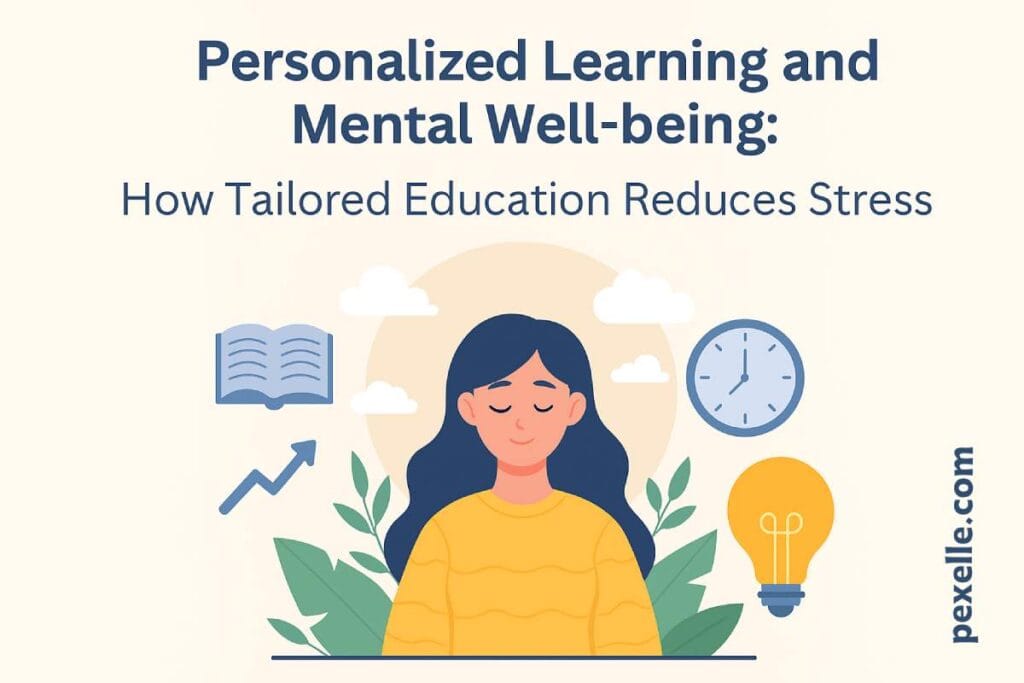Personalized Learning and Mental Well-being: How Tailored Education Reduces Stress

Introduction: The Link Between Learning and Stress
Traditional education often follows a one-size-fits-all approach, where learners are expected to keep pace with a standardized curriculum regardless of their background, abilities, or learning styles. This rigidity can create anxiety, frustration, and even burnout. In contrast, personalized learning—supported by artificial intelligence and adaptive technologies—reshapes education around individual needs. By tailoring content and pacing, personalized learning not only boosts knowledge retention but also plays a vital role in reducing mental stress.
The Stress of Standardized Learning
When learners are forced into rigid frameworks, stress levels naturally rise. A fast-paced syllabus may overwhelm slower learners, while repetitive content can disengage advanced students. Both scenarios contribute to reduced confidence and heightened pressure. In fact, research shows that academic stress is a leading factor in poor mental health outcomes among students and professionals. By ignoring individual learning preferences, traditional systems risk creating unnecessary psychological strain.
How Personalization Relieves Cognitive Pressure
Personalized learning systems adapt in real time to a learner’s pace, skill level, and preferred method of absorbing information. This flexibility removes the fear of “falling behind” or “not being good enough.” Instead of competing against a rigid standard, learners engage with education on their own terms. This not only improves performance but also lowers cortisol levels linked to stress, creating a healthier, more enjoyable learning journey.
The Role of Technology and AI
Artificial intelligence enables personalization at scale. Platforms powered by AI, such as Pexelle, analyze learner behavior and design adaptive pathways that suit unique needs. From recommending micro-learning modules to offering stress-reducing study schedules, these systems ensure that education is both effective and mentally sustainable. The learner gains confidence by progressing through a path that feels natural, while stress-inducing gaps in knowledge are addressed proactively.
Beyond Academic Success: Emotional Benefits
Reducing stress in learning has long-term emotional benefits. Learners who feel supported and understood are more motivated, resilient, and open to new challenges. Personalized education fosters a sense of autonomy, which strengthens mental well-being and prevents burnout. As education becomes less about rigid assessment and more about individual growth, learners experience joy and fulfillment instead of anxiety.
Conclusion: A Path to Balanced Growth
Personalized learning is not just a tool for academic achievement—it is a strategy for improving mental health. By reducing stress and promoting balance, tailored education empowers learners to thrive both intellectually and emotionally. As AI-driven platforms like Pexelle continue to grow, the future of education may no longer be about conformity, but about harmony between knowledge and well-being.
Source : Medium.com




